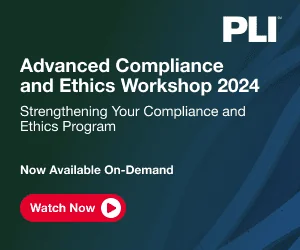For the first time in nearly a decade, the Federal Trade Commission has made sweeping changes to the Telemarketing Sales Rule aimed at addressing technological advances in the industry. These changes impose several new requirements related to recordkeeping in telemarketing transactions and will prohibit certain business-to-business statements. Frank Nolan and Amy Albanese of Eversheds Sutherland break down the details and what they mean for companies that use telemarketing.
The FTC promulgated the Telemarketing Sales Rule (TSR) in 1995 to curb deceptive and abusive practices in telemarketing. While the Telephone Consumer Protection Act (TCPA) is the primary law regulating the types of marketing telephone calls, text messages and faxes allowed to customers and potential customers, the TSR sets out several requirements and prohibitions for telemarketers while on sales calls.
The TSR defines telemarketing as “a plan, program, or campaign … to induce the purchase of goods or services or a charitable contribution” involving more than one interstate telephone call. With few exceptions, any businesses or individuals that take part in “telemarketing” must comply with the TSR, whether as telemarketers, those who initiate or receive phone calls to or from consumers, or as sellers, those who provide, offer to provide or arrange to provide goods or services to consumers in exchange for payment
The rule sets forth several requirements for telemarketers and sellers, including: (i) making specific disclosures of material information to customers; (ii) prohibiting misrepresentations; setting limits on the times telemarketers may call consumers; (iii) prohibiting calls to a consumer who has asked not to be called again; and (iv) setting payment restrictions for the sale of certain goods and services. Violations of the TSR subject a seller or telemarketer to a civil penalty of up to $51,744 per violation.
New recordkeeping requirements — and why they matter
In amending the TSR for the first time since 2015, the FTC imposed a number of expanded and new recordkeeping requirements for telemarketers; the rule also increases the record retention requirement from two to five years.
Substantially different advertising materials and each unique pre-recorded message
Section 310.5(a)(1) requires sellers and telemarketers to keep records of “all substantially different advertising, brochures, telemarketing scripts, and promotional materials.”
Under the amended rule, telemarketers will need to retain copies of each unique robocall, including each call a telemarketer makes using soundboard technology — i.e., pre-recorded audio clips selected and played by a human operator.
Call detail records
The commission added Section 310.5(a)(2) to require the retention of call detail records, which, as discussed in more detail below, will be necessary for any company attempting to make a safe harbor claim under Section 310.5(d). This must include, for each call a telemarketer places or receives:
- Calling number
- Called number
- Time, date, and duration of the call
- Disposition of the call, such as whether the call was answered, dropped, transferred or connected
For transfers, the record must include the phone number or IP address the call was transferred to and the company name if transferred to a company different from the seller or telemarketer who placed the call.
The amended rule further requires the retention of other records regarding the nature and purpose of each call, including:
- Telemarketer who placed or received each call
- Seller or charity for which the telemarketing call is placed or received
- Good service, or charitable purpose that is the subject of the call
- Whether the call is to a consumer or business, utilizes robocalls or is an outbound call
- Telemarketing script(s) and robocall (if applicable) used in the call
Finally, the amended rule requires the retention of records regarding the caller ID transmitted for outbound calls, including the name and phone number transmitted and records of the telemarketer’s authorization to use that phone number and name.
The FTC explained that the addition of Section 310.5(a)(2) is necessary for the commission to determine whether the rule applies and which sections of the TSR the seller and telemarketer must comply with for a telemarketing campaign. The FTC also stated that it is cognizant that this amendment will require some administrative costs in establishing a new recordkeeping system.
To address the concerns raised by the public comments, the FTC will provide a grace period of 180 days from the date Section 310.5(a)(2) is published in the Federal Register, which is Oct. 15, 2024, for sellers and telemarketers to implement any new systems, software or procedures necessary to comply with this new provision.
States Continue to Strengthen Telemarketing Compliance Laws
New call center rules in Connecticut join recently enacted regulations in Florida, Maryland, New Jersey & New York
Read moreDetailsSafe harbor for incomplete or inaccurate records kept pursuant to Section 310.5(a)(2)
In Section 310.5(d), the FTC added an additional safe harbor provision for temporary and inadvertent errors in keeping call detail records pursuant to Section 310.5(a)(2) above. Specifically, a seller or telemarketer will not be liable for failing to keep records under this section if it can demonstrate that:
- It established and implemented procedures to ensure completeness and accuracy of its records under Section 310.5(a)(2)
- It trained its personnel in the procedures
- It monitors compliance and enforces the procedures and documents its monitoring and enforcement activities
- Any failure to keep accurate or complete records under Section 310.5(a)(2) was temporary and inadvertent
The FTC further clarified that under this provision, sellers or telemarketers will have 30 days to cure an inadvertent error.
Established business relationship
Section 310.5(a)(5) clarifies what records a seller must keep to “demonstrate that the seller has an established business relationship,” or EBR, with a consumer. Under the rule, this means a relationship between a seller and a consumer based on:
- Consumer’s purchase, rental or lease of the seller’s goods or services or a financial transaction between the consumer and seller within the 18 months immediately preceding the date of a telemarketing call
- Consumer’s inquiry or application regarding a product or service offered by the seller within the three months immediately preceding the date of a telemarketing call
Under the amended TSR, for each consumer with whom a seller asserts it has an EBR, the seller must keep a record of the name and last known phone number of that consumer, the date the consumer submitted an inquiry or application regarding that seller’s goods or services, and the goods or services inquired about.
Records of consent
Section 310.5(a)(5) of the TSR requires sellers or telemarketers to keep records of “[a]ll verifiable authorizations or records of express informed consent or express agreement required to be provided or received under this Rule.”
The FTC proposed modifying this provision to clarify what constitutes a complete record of consent sufficient for a telemarketer or seller to assert an affirmative defense, stating it intends to clarify that common practices previously employed by telemarketers or sellers, such as maintaining a list of IP addresses and timestamps as proof of consent, are insufficient to demonstrate that a consumer has provided consent to receive telemarketing calls when the consumer has registered their phone number on the Do Not Call registry.
The amended rule, therefore, requires that for each consumer from whom a seller or telemarketer states it has obtained consent, sellers or telemarketers must maintain records of that consumer’s name and phone number, a copy of the consent requested in the same manner and format that it was presented to that consumer, a copy of the consent provided, the date the consumer provided consent and the purpose for which consent was given and received.
The rule will also require that if consent is requested verbally, telemarketers must include a recording of the consent requested as well as the consent provided and that recording must make clear the purpose for which consent was provided.
Other service providers
Section 310.5(a)(9) of the amended rule requires sellers and telemarketers to keep records of all service providers that the telemarketer uses to deliver an outbound call in their telemarketing campaigns, such as voice providers, autodialers, subcontracting telemarketers or soundboard technology platforms.
This provision applies only to the service providers with whom the seller or telemarketer has a business relationship and not to every service provider involved in delivering an outbound call. For each service provider, the seller or telemarketer must keep records of any applicable contracts, the date the contract was signed and the time period the contract is in effect. The seller or telemarketer must keep such records for five years from the date the contract expires.
Entity-specific Do Not Call (DNC) list
The TSR has previously required that telemarketers keep and maintain their own DNC list specific to their organization. Amended TSR Section 310.5(a)(10) will require telemarketers and sellers to maintain for five years records related to the entity-specific DNC list and its corresponding safe harbor provision under Section 310.4(b)(3)(iii).
Specifically, the rule requires telemarketers and sellers to retain records of:
- Consumer’s name
- Phone number(s) associated with the DNC request
- Seller or charitable organization from which the consumer does not wish to receive calls
- Telemarketer that made the call
- Date the DNC request was made
- Good or service being offered for sale or the charitable purpose for which contributions are being solicited
The FTC further clarified that the new recordkeeping provision requires retention of the identity of the telemarketing company that made the call and not the individual telemarketer.
DNC registry
The DNC registry allows individuals to register their phone numbers in a central database. After a number is registered, telemarketers may not contact a person unless a specific exemption applies, such as an established business relationship. Section 310.5(a)(11) of the amended TSR will require sellers and telemarketers to retain records of the version of the DNC Registry they use. This means maintaining records of:
- Name of the entity that accessed the registry
- Date the DNC registry was accessed
- Subscription account number that was used to access the registry
- Telemarketing campaign(s) for which it was accessed
Modification of B2B exemptions
The amended TSR will also modify the prohibition on misrepresentations and false or misleading statements in business-to-business (B2B) telemarketing calls. The TSR previously exempted most B2B calls and instead applied only to calls made to individual consumers. The FTC clarified that the expansion was needed due to the rise in B2B scams utilizing telemarketing. The amended rule does not extend any other provisions of the TSR to B2B calls, such as recordkeeping, DNC registry or DNC fee access requirements.
Timing
The amended rule will become effective 30 days after publication in the Federal Register, which occurred April 16, except for the retention of call detail records, which, as discussed above, companies will have until October to come into compliance with.
Further proposed TSR amendments
Finally, as it announced its final rule, the FTC also issued an additional proposal to amend the TSR, which would cover inbound telemarketing calls involving technical support services. The FTC defined technical support services as “any plan, program, software, or service that is marketed to repair, maintain, or improve the performance or security of any device on which code can be downloaded, installed, run, or otherwise used, such as a computer, smartphone, tablet, or smart home product.”
The proposal would exclude tech support services that take physical possession of a device being repaired. Instead, the TSR’s requirements would only come into play if a tech repair service or company disseminated advertisements that resulted in inbound customer calls.




 Frank Nolan
Frank Nolan Amy Albanese
Amy Albanese 









